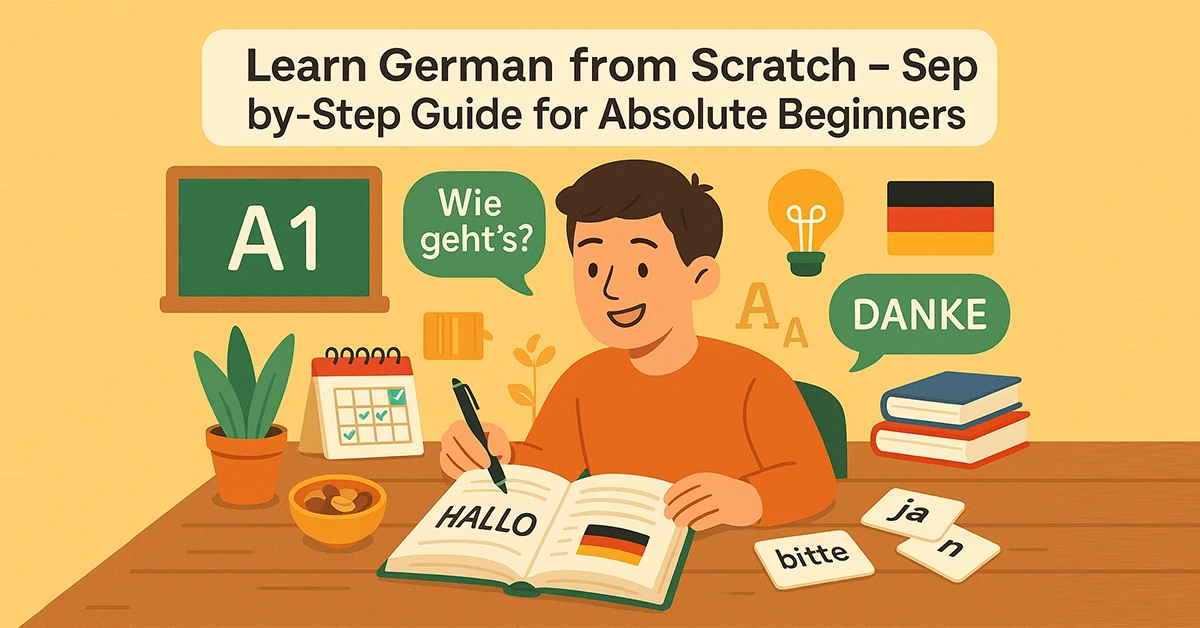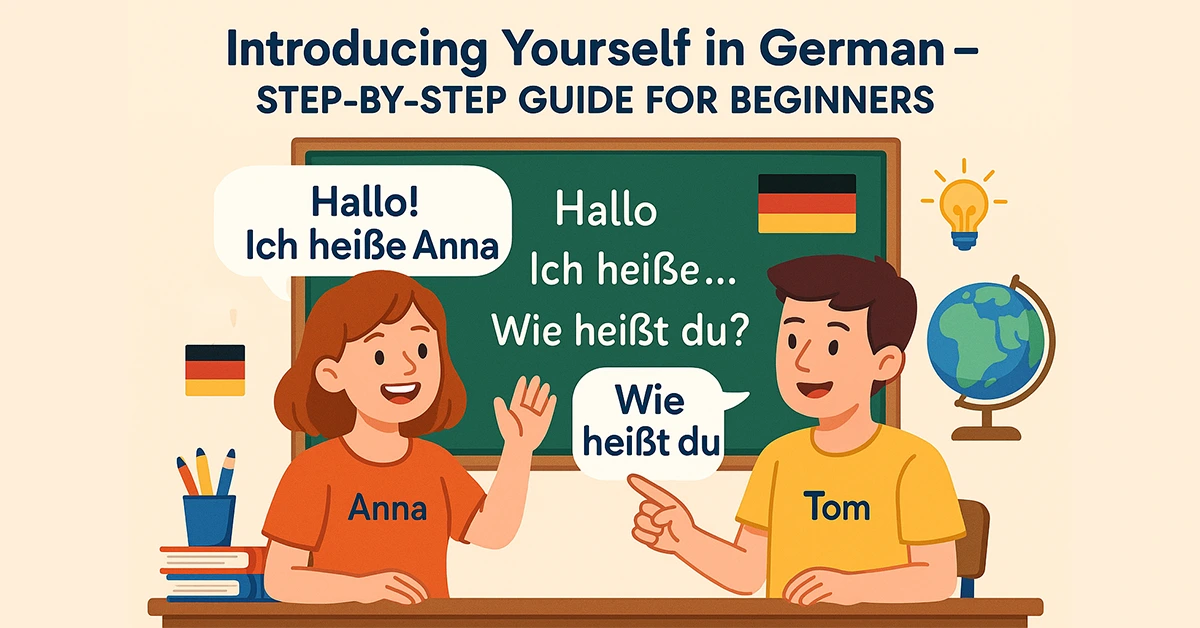basic German phrases
-

German Survival Kit for UK Expats in Germany
Learn essential German phrases, vocabulary, and survival tips for UK expats in Germany. This complete language kit helps you handle daily life with confidence.
-

Learn German from Scratch – Step-by-Step Guide for Beginners
Want to learn German from scratch? This step-by-step beginner’s guide covers grammar, vocabulary, pronunciation, tools, and tips to start speaking German confidently.
-

Introducing Yourself in German – Step-by-Step Guide
Learn how to introduce yourself in German step by step with easy phrases, real examples, and pronunciation tips. Perfect for beginners starting their German journey.